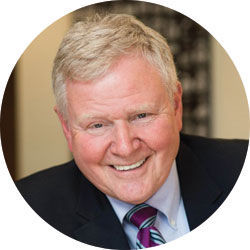
By: Barry Shrage, President of CJP
Last week, CJP and the Ruderman Synagogue Inclusion Project celebrated the diversity and abilities of our whole Jewish community.
The Ruderman Synagogue Inclusion Project is working with Temple Emunah (Lexington), Congregation Shaarei Tefillah (Newton Centre) and Temple Beth Elohim (Wellesley) to help our congregations better understand the needs of those with disabilities.
They have received grant funding and professional guidance to help make their own congregations more welcoming and inclusive, while also sharing best practices and learnings with the wider community.
The event celebrated their accomplishments and hard work and encouraged other congregations to join. It encouraged every congregant and congregational leader to consider how they and their congregations might do more to welcome those with disabilities and create a more caring congregation for all. The success of each congregation and of our entire Boston Jewish community depends on their efforts. A Jewish community that fails to love and care for its most vulnerable is no Jewish community at all.
The featured speaker was Judith Heumann, Special Advisor for International Disability Rights at the U.S. State Department. She is an amazing person with a wonderful spirit.
She serves at the highest level of government, passionately advocating for the needs and human rights of people with disabilities around the world. Her talk was beautiful and powerful, describing her own life as a Jew with a disability facing a community that was at times cold, uncaring and rejecting. She talked about her decision to re-enter Jewish life when a Rabbi and a Hillel in Berkeley CA made her feel welcomed. A community that is welcoming and caring is important to all of us and even more so for those who have felt excluded, vulnerable and wounded.
Rabbi Joseph B. Soloveitchik wonderfully described the responsibility of the Jewish community to those who are vulnerable in a speech entitled “The Community,” one I attended back in 1976 at a meeting of Jewish communal professionals here in Boston and that was published in the journal Tradition:
“To recognize a person is not just to identify him physically.
It is more than that: it is an act of identifying him existentially,
as a person who has a job to do, that only he can do properly.
To recognize a person means to affirm that he is irreplaceable.
To hurt a person means to tell him that he is expendable, that
there is no need for him.
The Halacha equated the act of publicly embarrassing a person
with murder. Why? Because humiliation is tantamount to
destroying an existential community and driving the individual
into solitude. It is not enough for the charitable person to extend
help to the needy. He must do more than that: he must try to
restore to the dependent person a sense of dignity and worth.
That is why Jews have developed special sensitivity regarding
orphans and widows, since these persons are extremely sensitive
and lose their self-confidence at the slightest provocation…
What kind of an affliction does the Bible prohibit?
Murder, mutilation, causing of severe pain, destruction of property,
etc.? Not only these, but lesser evils, as well. Whatever
affects the peace of mind of the widow or orphan (those who are vulnerable and alone) is considered affliction. A word, a gesture, a facial expression by
which the widow or the orphan feels hurt; in short, whatever
causes an accelerated heartbeat - that comes under affliction.
Welcoming and caring, and avoiding affliction through a word, a gesture, or even a facial expression by which a person with a disability feels hurt is a very high standard for an individual or a congregation or a community and yet that is the standard that God and Jewish history calls on us to aspire to. It is the only standard that in the long run will preserve our community and our right to call ourselves a “light unto the nations.” It is the only standard that will bring our children and grandchildren back to a Jewish community that they can be proud of and that fills their lives with joy and meaning.
With deep appreciation to the Ruderman Family Foundation for leading the way with hope and faith in the Jewish future and in our ability to create a community of true justice and caring.
To view photos from the Celebrating Inclusion: Opening Doors to Jewish Community event, visit us on Facebook.

About the Author
A passionate advocate for Jews in Greater Boston and around the world, CJP President Barry Shrage has worked tirelessly to create an inclusive community and drive positive change.

0Comments
Add CommentPlease login to leave a comment